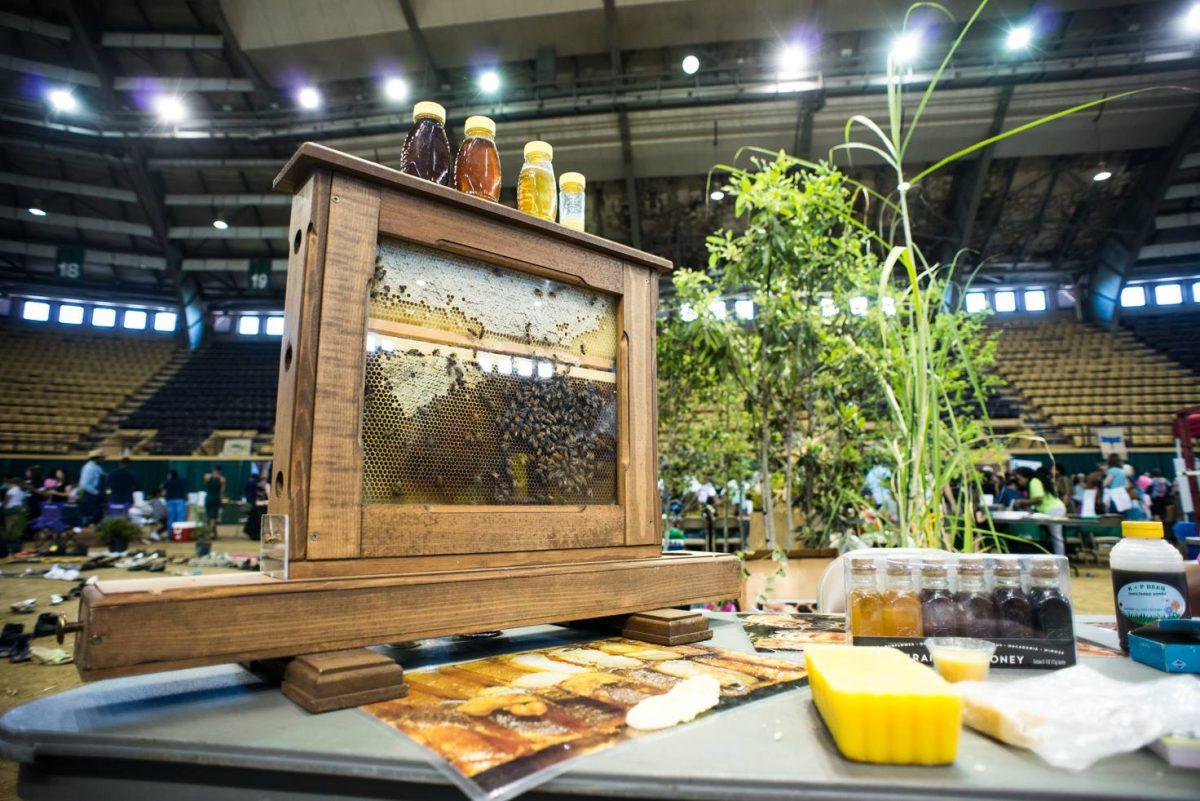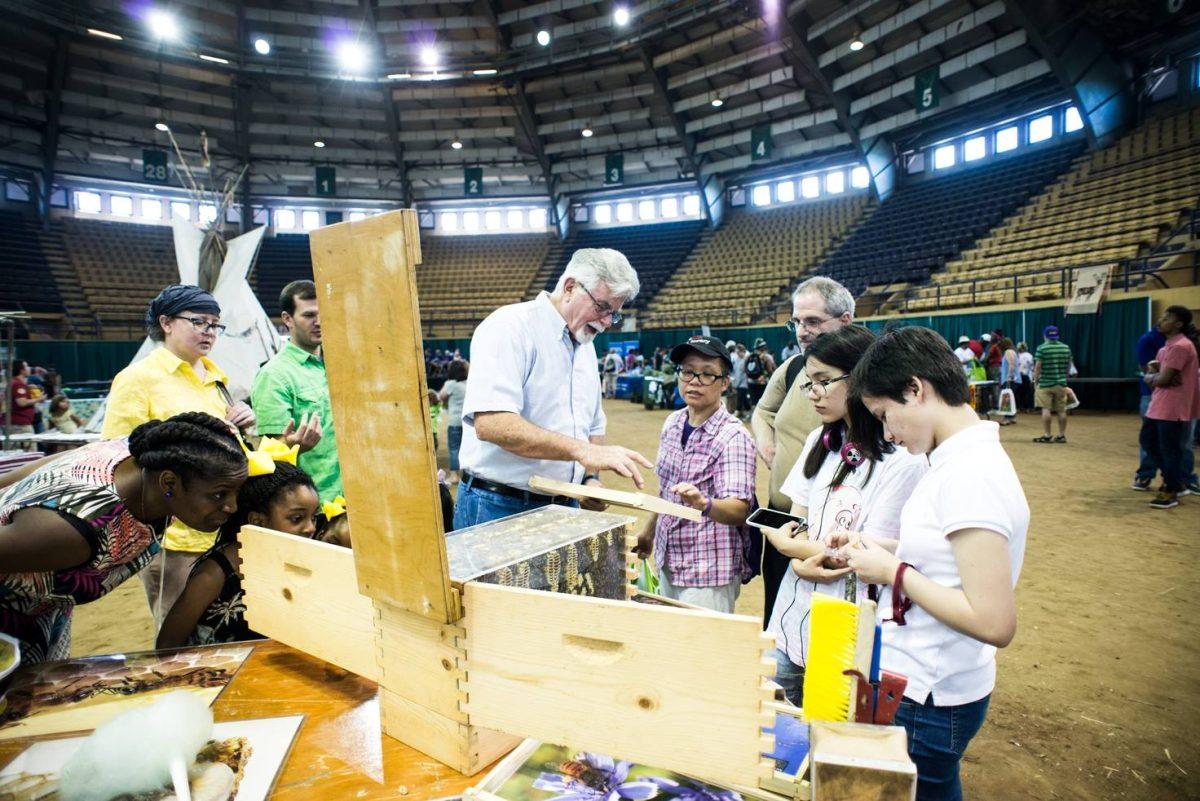It’s the bee’s knees. And the bee’s body. Really, all parts of the bee are appreciated at the Capital Area Beekeepers Association, a Baton Rouge group that educates and promotes beekeepers and beekeeping.
Geoff Badeaux, vice president of the association, said its goal is to inform people about the importance of bees, how to access local resources and how to get into this widespread hobby.
“We’ll have a booth where we tell people about bees, how they work and pollinator facts,” Badeaux said. “Pretty much just promote people to either become beekeepers or be friendly to beekeepers.”
The organization has around 200 members, ranging from professionals to hobbyists to those who are trying to get involved with beekeeping but have no idea how to go about it. Everyone interested in bees are welcome to go and get information, as well as use the resources offered by the association.
Badeaux said that beekeeping isn’t as complicated as some might think and can also be relatively cheap. He said the hobby is what you make of it, adding that he jumped into beekeeping quickly.
“It’s one of those hobbies where you can spend as much money and time into it as you want, you can get the premium equipment and go out and spend hundreds of dollars on a small amount of bees,” Badeaux said. “You can order fancy genetic bees from whatever breeder there is out there breeding bees and get super bees, or you can catch bees on your neighbor’s house with a cardboard box and put them in a top bar hive you make for $30.”
Badeaux falls more on the catching bees side, recently gaining a bee swarm from his neighborhood. In spring, bees tend to swarm, going out in massive groups to form new colonies.
These swarms are all over the place, near people’s houses, in local areas, and even found near the library.
This is an important time for beekeepers, who go out and catch the swarms, but it can also be a nerve-wracking experience for the average citizen.
“People are pretty vocal when they find that they have a bee swarm in their tree,” Badeaux said.
Apparently the risks of having thousands of bees flying around aren’t as scary as they seem. Badeaux said honey bees are really gentle and don’t sting unless provoked. As someone who’s gotten stung before, he also said the stings aren’t really that bad. As long as you know what you’re doing while working with the hive, there shouldn’t be problems.
The Capital Area Beekeepers Association helps newbies learn how to handle bees by doing training days at the club apiary, where people can work with the club bees. The association has six hives, gaining around 25-50 gallons of honey from their last harvest.
A normal colony has at least 20,000 bees, which can usually produce about five to 10 gallons of honey. Badeaux said that it’s one of the perks of being a beekeeper.
“You get a lot of honey out of these things.”








